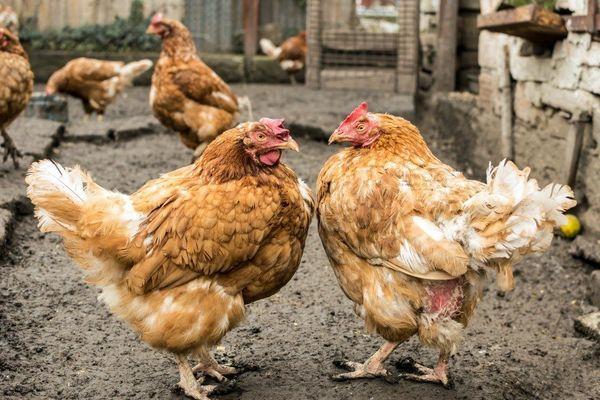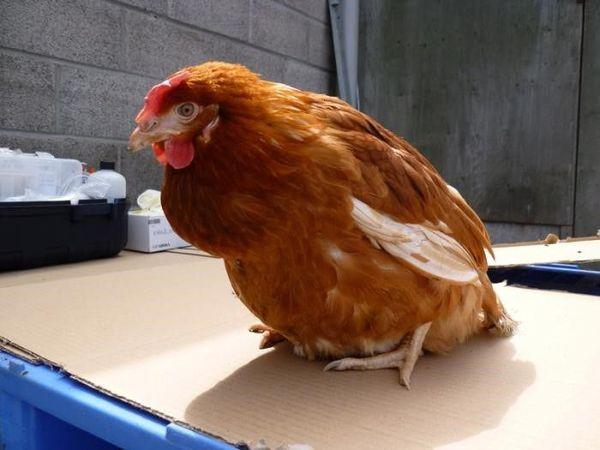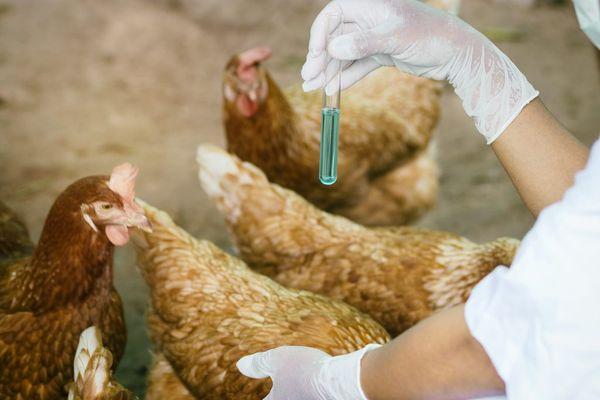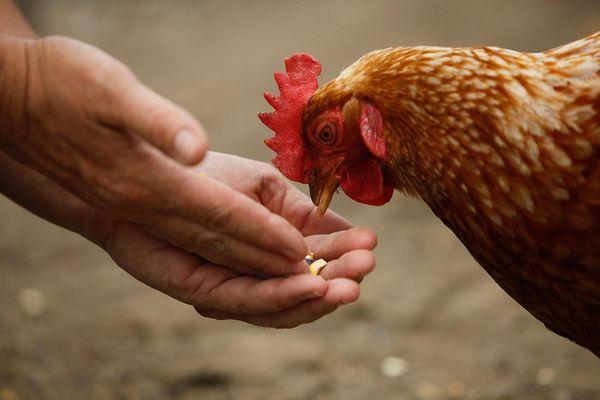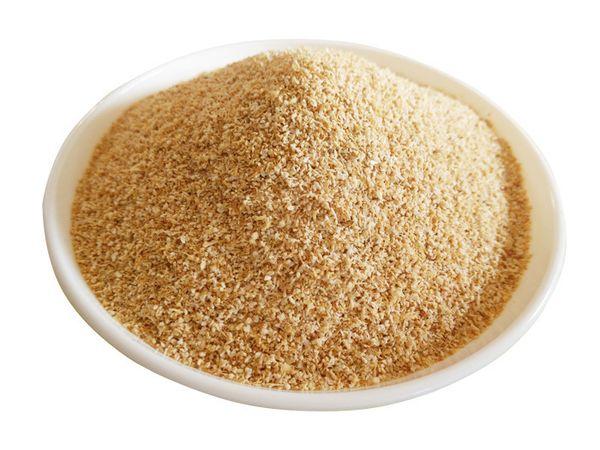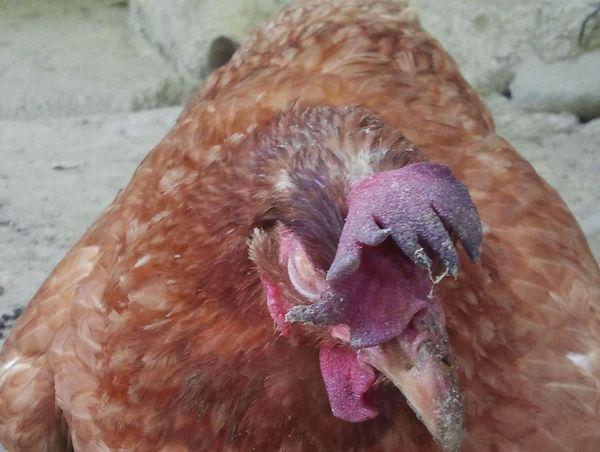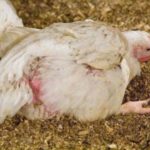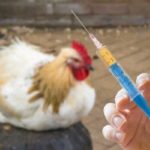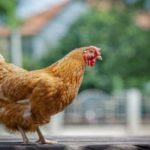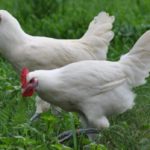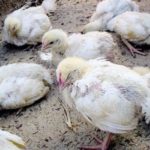The development of cloacitis in chickens is fraught with negative consequences for birds. If the birds are not helped in time, there is a high probability of death. To cope with pathology, medications, folk recipes, and vitamin complexes are used. To avoid such problems, it is worth paying attention to preventive measures. First of all, it is worth providing the chickens with normal care and nutrition.
- Description of the disease
- Causes of cloacitis in chickens
- Poor nutrition
- Constipation
- Difficulty laying eggs
- Signs and symptoms of the disease
- How is the disease diagnosed?
- How to get rid of cloacite
- First actions
- Relieving symptoms
- Vitamin complexes
- Antibiotics
- Other medicines
- Possible consequences
- How to prevent the occurrence of pathology
Description of the disease
This term refers to an inflammatory lesion of the cloaca. Young laying hens are more susceptible to the disease. It can also occur during the final stages of oviposition. Most often, pathology develops in the spring. This is due to the end of the unproductive period.
The pathology is widespread and often leads to death. It can cause serious damage to the poultry house.
Causes of cloacitis in chickens
The cloaca is considered an important part of the body of birds. It takes part in the digestive processes and is the final fragment of the reproductive system. The egg-laying pores of chickens are more susceptible to the development of cloacite.
Poor nutrition
The key factor in the problems is an excess of protein components in the diet and insufficient calorie intake. Violation of proportions leads to the fact that one part of the proteins is absorbed, and the second is transformed into uric acid.
This crystalline compound leads to damage to the cloaca and causes microtrauma. Pathogenic bacteria penetrate these places. Under the influence of a complex of negative factors, inflammation develops, bleeding and other unpleasant symptoms occur.
Constipation
Stool disorders are a direct consequence of poor nutrition. If chickens get enough vitamins and minerals, they will not suffer from constipation.
Difficulty laying eggs
Laying hens are more susceptible to cloacitis. This is due to the fact that the organs of the cloaca take part in the process of oviposition.
Signs and symptoms of the disease
Signs of cloacitis can vary. Initially, the disease is asymptomatic for a long time. At the initial stage of development of the disease, the following manifestations occur:
- appetite worsens and digestive disorders appear;
- the chicken drinks a lot of liquid;
- apathy occurs;
- constipation appears;
- there is weight loss and loose stools;
- firmness in the legs is lost - when moving, the bird may fall;
- Feathers fall out in the area of the belly and anus.
As the disease progresses, the following signs appear:
- the cloaca falls out;
- the chicken is leaking white liquid from the cloaca;
- the skin in the affected area becomes red and inflamed;
- swelling appears around the anus;
- blood appears from the anus.
Abnormal processes also occur in the laying hen’s body. In this case, a change in the structure of the oviduct is observed, inflammation of the glands occurs, which disrupts the release of the egg. As a result, it enters the abdominal cavity. Decomposition products accumulate there and purulent processes develop. As a result, the bird dies from intoxication of the body.
How is the disease diagnosed?
To identify a disease, it is worth analyzing the symptoms of the disease. With the development of cloacitis, the hatching of eggs is disrupted. This process causes pain in the chicken. In this case, the hen sits in one place for a long time, trying to lay eggs.
In such a situation, you need to contact a veterinarian who will make a diagnosis and select treatment.
How to get rid of cloacite
To cope with cloacitis, treatment should begin as early as possible. It must be comprehensive.
First actions
First of all, it is recommended to isolate the sick bird. The disease is contagious and therefore poses a danger to all chickens. In addition, the presence of blood on the cloaca can cause pecking.
To cope with constipation that causes cloacitis, manual cleansing of the cloaca is performed. To do this, the cloaca should be washed.During the procedure, droppings, purulent masses and other contaminants are removed. To carry out the manipulation, antiseptics are used - a solution of furatsilin or potassium permanganate.
A cotton swab should be soaked in the medicine and applied to the affected area for a few minutes. The manipulation is performed several times until complete cleansing. Finally, the anus should be treated with a mummy solution with a concentration of 3%.
Relieving symptoms
To eliminate discomfort, the cloaca should be treated with an antiseptic and a medicinal ointment applied.
For this you can use the following drugs:
- Terramycin – has an antiseptic effect, restores, softens, and relieves inflammation.
- Furacilin - has the same properties. It is important to strictly follow the dosage to avoid negative effects on the bird.
- Levomekol - the composition is used for purulent processes, which are a complication of cloacitis.
- Streptocide – has antimicrobial and restorative properties.
After treating the cloaca, chickens should be isolated, as there is a risk of cloaca pecking. As a result, the condition of sick birds deteriorates greatly.
It is important to keep affected individuals clean. If droppings or dirt stick to the anus, there is a risk of relapse of the disease and the development of complications.
Vitamin complexes
Cloacitis also requires systemic therapy. For this purpose, vitamin complexes are used, which compensate for the lack of useful elements. The following drugs are usually prescribed:
- Shilajit solution. The product helps normalize metabolic processes and cope with the signs of vitamin deficiency. The substance is given to birds in the morning, 30 minutes before meals.
- Chiktonik. This feed additive promotes recovery from illness. The solution is added to water.
- Choline chloride. The product includes many B vitamins.It is used for the treatment and prevention of cloacitis by adding it to food.
Antibiotics
If an additional infection occurs, antibiotics should be used. Most often, doctors prescribe Dorin or Avidox. For intestinal pathologies, Amoxicillin and Levomycetin are indicated.
Other medicines
For cloacitis in chickens, ASD-3 is often used. It has an antiseptic and anti-inflammatory effect. The drug also activates the restoration of affected tissues.
Iodoform has a similar effect. It is used to disinfect affected areas. Usually the drug is used in the form of a powder. The product can also be prepared in the form of a paste. To do this, it is mixed with Vaseline.
It is strictly forbidden to use alcohol-based medications. They dry out the skin greatly, which leads to worsening of the disease.
Possible consequences
If the disease was detected at the initial stage, timely therapy allows the bird to fully restore its health. In more complex cases, irreversible processes occur that provoke death.
How to prevent the occurrence of pathology
To avoid the development of cloacitis, you need to follow a number of preventive recommendations:
- Keep the premises clean. Every day it is worth cleaning, adding fresh bedding, and disinfecting the chicken coop.
- Keep nests and perches clean. This helps prevent the spread of infection.
- Systematically change the water and wash the drinking bowls every day.
- Provide chickens with proper and balanced nutrition. Food should be purchased from trusted manufacturers.
- Keep walking areas clean. It is recommended to mow the grass as needed.
- Equip sheds in walking areas.This will help prevent the coop from getting dirty in rainy weather.
- Comply with space standards, avoid crowding and tightness. This applies to the chicken coop and walking area.
- Adhere to standards for the size of drinkers and feeders. They should be selected depending on the number of birds.
- Inspect the livestock every day. Thanks to this, it will be possible to promptly identify infected or sick birds.
Cloacitis is considered a serious disease that often occurs in laying hens. In order to cope with pathology in a timely manner and avoid dangerous health consequences, it is important to make a timely diagnosis and select treatment.

